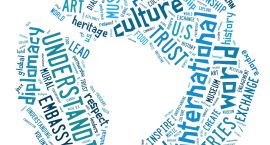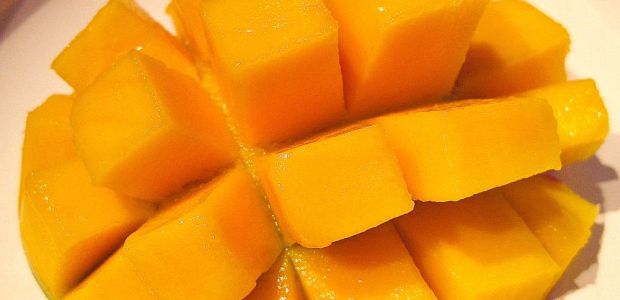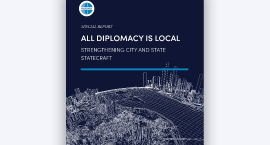Meridian’s Art for Cultural Diplomacy staff learned about a fascinating tradition between India and Pakistan when Dr. Curtis Sandberg, Senior Vice President for the Arts, traveled to New Delhi to sign a Memorandum of Intent with the Indian Council of Cultural Relations. During his stay, he met with Times of India journalist, Indrani Bagchi, who brought up the significance of mango diplomacy – a soft power initiative that we wanted to share with our readers.
The people of India and Pakistan have existed under similar spheres of influence for millennia, including the Indus Valley Civilization and the Mughal Empire, and in subsequent centuries developed similarities in language, literature, art, architecture, and cuisine across a key international border. Today, while both countries often focus on issues that divide them, a popular, regional fruit is bringing the two nations together to try and ease tensions.
Mangoes in India and Pakistan traditionally have served not only as a status symbol, but also as a means of reconciliation. Both countries have designated mangoes as their national fruit, which results in much discussion over who grows the best crops and the most varieties, as well as competition for exports on the international market. The early 1980s marked the beginning of mango diplomacy, when Pakistan’s former President, General Mohammad Zia-ul-Haq, exchanged indigenous varieties with the Prime Minister of India, Indira Gandhi. Decades later, Indian Prime Minister Manmohan Singh sent Pakistani Prime Minister Yousaf Raza Gillani twenty kilograms of the highly revered Alphonso variety in 2010 to reduce the trust deficit between the two nations. After a devastating flood hit Pakistan several months later and after the nation hesitantly accepted millions in aid from India, Gillani returned the gesture by delivering five crates of Pakistani mangoes to Singh as an expression of gratitude.
Mango Diplomacy and the U.S.
Recently, mangoes have served as a vehicle to improve economic and trade relations between the United States and two of the largest exporters of the fruit. In 2006, the U.S. lifted its ban on Indian mangoes in exchange for an agreement that Harley Davidson motorcycles could be sold in India. Likewise, in 2011 former Secretary of State Hillary Clinton, in collaboration with USAID, helped initiate the removal of the ban on Pakistani mangoes. When the Chaunsa variety became available in select retail stores in New York and Chicago, special deliveries were made to the White House, Clinton, and several members of Congress. Lifting these sanctions not only gave Americans access to these luscious fruits, but also helped strengthen Indian and Pakistani economies, as well as bilateral relations.
As the mango season draws to a close, it is a good opportunity to reflect on the power of the mango and decide for yourself if it deserves to be called “the king of fruits.”
















